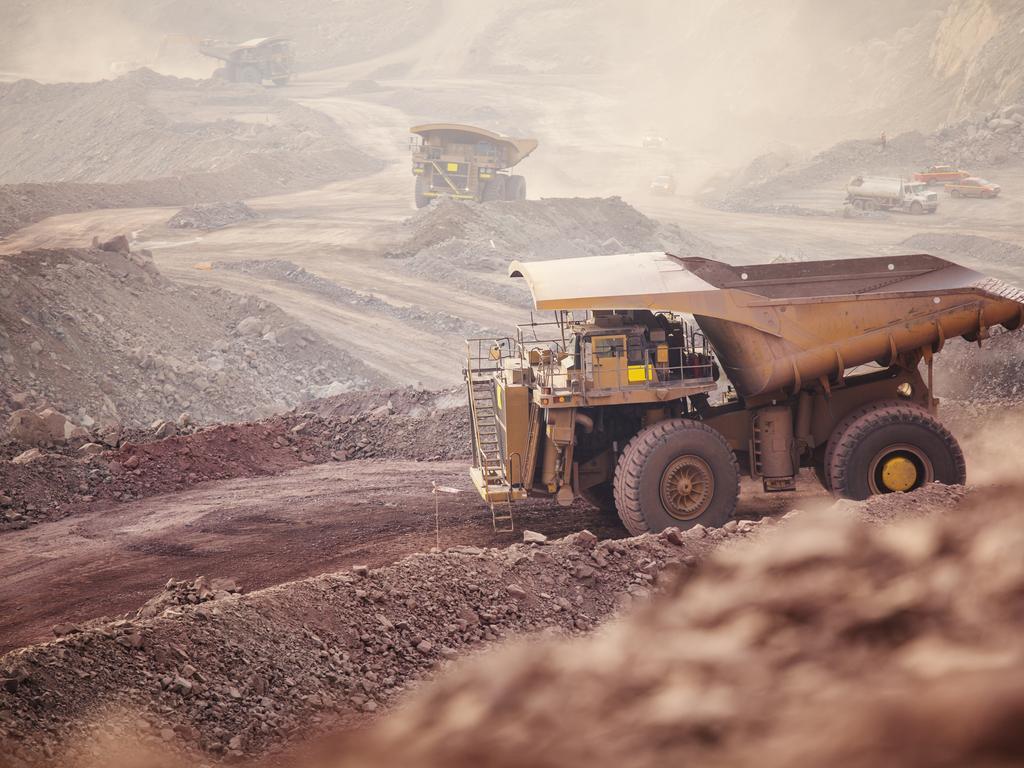Global copper shortage to smash net-zero, EVs push


While the global economic downturn may delay the 2024-25 forecast start, we are on track to soon discover that all the great carbon emission-reduction plans devised by politicians under electoral pressure simply won’t be achieved without unbearable pain to voters.
The politicians at conferences like Paris, Edinburgh and Kyoto made emission-reduction undertakings that to be achieved required vast amounts of additional copper and other minerals.
They did not consult or work with the mining industry. Many minerals, including nickel, will be in short supply but copper – the “metal of electrification” – presents the biggest nightmare so I will confine today’s commentary to copper.
Currently global miners and refiners produce around 25 million tonnes of copper metal to satisfy demand.
One year ago the research wing of S&P Global warned that by 2035 the world would need to double production to about 50 million tonnes to satisfy demand boosted by electrification.
The mining industry is simply unprepared to undertake this task. The S&P Global research has the shortfall rising each year from around 2025.
Substitution and recycling will not be enough to meet the demands of electric vehicles, power infrastructure, and renewable generation unless massive new supply comes online.
The goal of “net-zero emissions by 2050” will be short-circuited and remain “out of reach”, according to S&P Global.
Tomorrow I will explain how Australia has ignored the copper shortage ramifications in its environmental strategies.
Yet with the right leadership we can be a major beneficiary from the looming global shortages.
The world is not short of copper ore but the high-grade ore reserves used in former years are running down so mining, concentrating smelting and refining is increasingly being based on low grade ores that are more costly source of copper metal.
So copper prices must rise to enable increased production to be economic.
Many miners and capital providers want to see the shortage-induced copper price rises activated before committing capital.
The actual time involved in constructing substantial mine and concentrating plant is usually about four to five years. But the complex tasks of delineating the ore body and gaining environment and other approvals usually means there is usually 10 to 15 years between discovery and mining.
Those mine delays mean that it is impossible provide the copper production increases required to meet the ambitious political carbon emission timetables. If the copper price explodes then economics of carbon production will be shattered.
To minimise the copper shortfall global governments including Australia will have to devise totally different approval processes.
Chile has the world’s largest copper reserves but we are next. Other countries with significant reserves include Peru, China, Congo the US and Russia.
Historically Australia simply digs out its ore and, where necessary, produces concentrates and then exports ore and concentrates.

In copper Chile and China dominate refining and smelting.
We have a chance to correct past errors and become major smelters and refiners and export copper metal rather than concentrates but that would require a very different level of strategic thinking than currently exists in Canberra.
BHP‘s Olympic Dam ore contains uranium so BHP will erect an additional smelter (based on renewable energy) to separate the uranium but most of the rest of Australian copper will be exported as concentrates.
China and Chile will be anxious to maintain their copper metal dominance and while Australia is brilliantly placed to produce copper metal, energy politics in Australia are a nightmare China and Chile are therefore in good positions to retain control of global copper metal production.
China will almost certainly use cheap Russian gas as their source of energy. If that happens the world‘s massive shift to electric vehicles and their vast copper requirement will not achieve the carbon reduction that drove the shift from fossil fuels.
Given that copper is in-effect replacing oil gas and coal as an energy source we are looking at a world where the supply of energy is far more concentrated than the sources of oil gas and coal. China is emerging as the dominant provider of global energy via copper.
US copper reserves have massive environmental and racial regulations and the Americans would love Australia to become a major smelting and refining centre to reduce reliance on China.
But once the capital markets determine where the smelters and refineries are to be built it will be too late for an Australian entry.
The US is investing massive sums in research to devise better ways of generating carbon free electricity.
Unless there is a big break through under S&P Global’s “high ambition” scenario (where everything goes right) the United States will still need to import 57 per cent of its refined copper while under the more likely “Rocky Road” scenario, imports will total two-third of US refined copper demand.
The biggest single driver of copper demand is the electrification of the transport fleet
Building a battery electric cars currently requires about 2.5 times more copper than conventional internal combustion engine cars.
Copper is present in the internal wiring and battery packs. The copper requirement of heavy transport vehicles is much greater. To that must be added the establishment of copper intensive charging stations.
The world has underestimated the copper requirement in its electric vehicle transformation and the ramifications will change the world.






The great global copper shortage is due to start in just over a year so the countdown has begun.